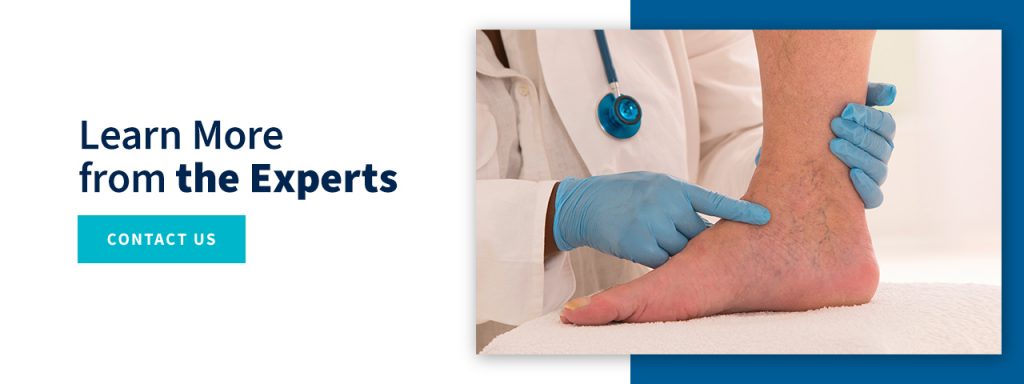
Atrophie blanche is a specific angular scar pattern that forms on the lower leg or foot after an injury heals. The appearance of atrophie blanche is typically a sign of more severe venous issues.
At Central Florida Vein and Vascular Center, we are proud to offer expert care for patients throughout the central Florida area. From your initial phone call to your last appointment, you will feel the difference our personalized care provides.
Atrophie blanche is a scarring pattern that appears after an ulcer takes a long time to heal. In most cases, atrophie blanche occurs at the ankles or on the top of the feet. Atrophie blanche can appear as:
Most cases of atrophie blanche result from venous insufficiency and often occur in middle-aged females. Factors such as hot climates or pregnancy can cause the condition to worsen.
The veins in your legs carry blood back to your heart through one-way valves. A blood clot in your legs, a lack of exercise or sitting and standing for long periods can weaken or damage these valves and cause blood to flow back toward your legs. Some causes of a blood clot can include:
This additional blood can result in high amounts of pressure in the veins of the lower legs and prevent the surrounding tissues from receiving the nutrients and oxygen they need. This lack of nutrients can damage the tissues, making it harder for wounds to heal and eventually leading to atrophie blanche.
The symptoms of leg ulcers, and subsequently atrophie blanche, can vary between patients. If you are experiencing one of the following symptoms, make an appointment at Central Florida Vein and Vascular Care as soon as possible:
One of the more effective treatments for atrophie blanche is compression therapy. During compression therapy, you will use compression stockings to counteract the current pressure in your legs and encourage blood flow toward your heart. Many different compression stocking options are available, and our team will guide you on which ones are best for your needs.
Since the founding of Central Florida Vein and Vascular Center in 2001, our team has remained committed to providing our patients with the highest level of vein and vascular care. From your initial appointment with our team to follow-up after treatment, your care is always our priority, and we strive to go above and beyond to meet your specific vein and vascular needs.

If you’re ready to start improving your venous health, schedule an appointment at Central Florida Vein and Vascular Center today! Our patient-centered environment will cater to your needs to help you feel and look your best. To schedule an appointment at our offices in Ocoee, Kissimmee, The Villages or Oviedo, please complete our contact form today!